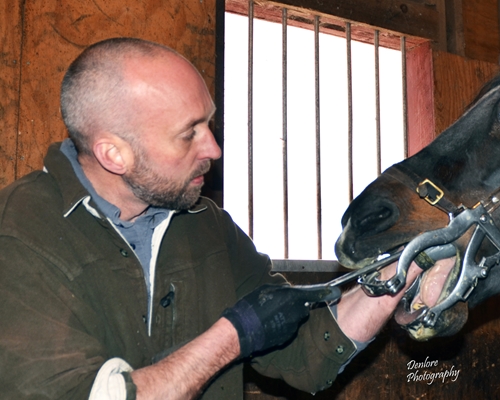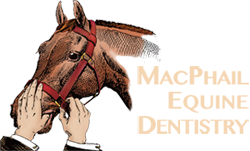
Equine Dental Conditions & Procedures
MacPhail Equine Dentistry performs a comprehensive exam on each horse. Exams often include identification and correction of the following equine dental conditions:
Retained Deciduous Teeth (“Caps”)
Caps often inhibit the proper eruption of adult teeth and can lead to infected and lacerated gums, tongue, and cheeks.
Wolf Teeth
The presence of wolf teeth are often associated with issues related to a bit fit comfortably in a horse’s mouth.
Molar Hooks
Molar hooks are often caused by a misalignment of the upper and lower jaw, and occur on the first premolar of the upper jaw and the last molar of the lower jaw.
Parrot Mouth
This is a congenital condition in which the upper jaw is longer than the lower jaw, resulting in the development of hooks on the upper premolars and lower molars.
Wave Mouth
This condition involves a variation in molar height that causes uneven wear and compromised range of motion.
Enamel Points
These points develop on the outer edge of upper molars and premolars and inner edge of lower molars and premolars.
Tartar Removal
Tartar is typically removed from canines and incisors, and aids in the prevention of gum disease.
Loose Molars, Premolars, and Incisors
Recommended Schedule for Dental Appointments
Foals:
We recommend examining foals for congenital defects and to confirm normal presence and development of incisors and premolars.
2 to 5 Year Olds:
An exam every six months is recommeded to check for retained caps, enamel points, and normal development, and to float (smooth) sharp points as needed
Adults:
Routine dental care for adult horses should be be provided every 10 months to check for normal wear patterns, full range of motion of lower jaw, and to float (smooth) sharp enamel points.
To schedule an appointment, contact Duncan at 802-291-0354 or by email.

802-291-0354